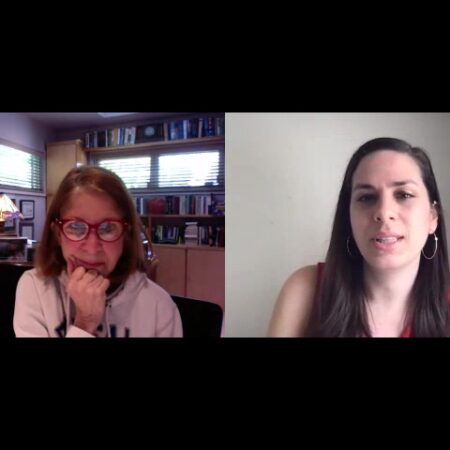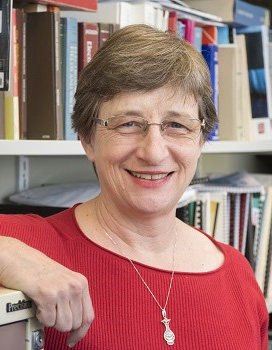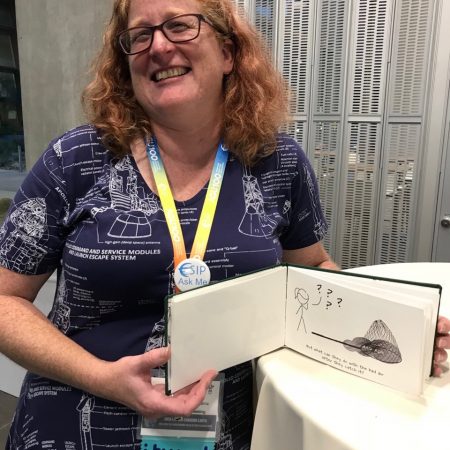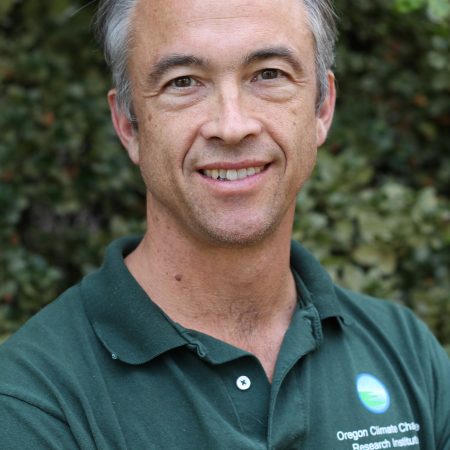Refine
Date Range Clear
Recorded by Clear
Keywords Clear
Partnerships Clear
Organizations Clear
- American Geophysical Union 11
- Ameican Geophysical Union 1
- American Geophsyical Union 1
- American Red Cross 1
- European Geophysical Union 1
- 8 more
Places Clear
- Washington DC 42
- AGU 2018 Fall Meeting 35
- Leadership Development Commitee 2
- AGU 1
- AGU 100 Fall meeting 1
- 8 more
Languages Clear
Initiatives Clear
James Butler has studied atmospheric chemistry, ozone depletion for over thirty years. Now, as the Director of NOAA’s global monitoring, he helps direct research into the hole in the ozone layer and climate change. He knows firsthand that we have...
Michael Freilich, Director of NASA's Earth Science Division, shares about his life studying the oceans and Earth as a system. While still in his high school's oceanography club, he started exploring a question about how waves move that later became...
How did Biogeoscience become a recognized field of study, with its own journal and sections at AGU? What obstacles did its organizers have to overcome in order to make it a viable field and a welcome presence at AGU? In...
Mara Jill Herman (Astoria) interviews her mom Emmi S. Herman (Searingtown) on Mother's Day, 5.9.2021. They chat about community, collaboration, vaccine awareness, and legacy.
Erin Robinson is the Executive Director of the Earth Science Information Partners (ESIP). She knew from early on that she was interested in science and her field of remote sensing, from good science teachers in middle and high school to...
Eager to get out of the lab, Martha Savage spent the year immediately following her undergraduate graduation at the Amundsen-Scott South Pole Station where she worked as a cosmic ray observer. In this position, Dr. Savage, who is now a...
Krystal Yhap’s interest in urban water resource management was sparked by the conversations around water safety in Flint, MI. She’s now a graduate assistant at the University of Maryland studying the water system in San Francisco. She talks about her...
Denise Hills, Director in Geological Survey of Alabama and AGU leader shares stories of her collaborative experiences and how it has shaped her career. She discusses the significance of the growth of science and the importance of communicating science to...
Is it a good time to be a climate scientist? Yes, says Phil Mote, Director Oregon Climate Change Research Institute at Oregon State University. Predictions over the past 40 years are coming true and while some look at that with...
Emily Schaller, project manager at NASA's National Suborbital Research Center at Ames, discusses her Ph.D. work studying the clouds on Titan and her work as a science and education. She recalled how as a young child, she would study illustrations...

!["I joined an Oceanography club & actually asked the question that ended up [being] my thesis." an interview with Michael Freilich](https://archive.storycorps.org/uploads/2019/02/181212_Freilich-450x450.jpg)




![“I'd love to see more collaboration happen and [it is] integral in terms of science working in the future.” An interview with Krystal Yhap](https://archive.storycorps.org/uploads/2019/07/Headshot-KYhap-450x450.jpg)


